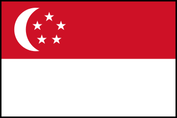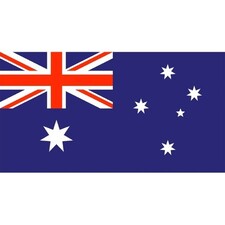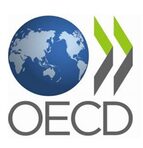|
On August 19, 2021, Japan’s Ministry of Economy, Trade, and Industry released an interim report on digital economy taxation.
The report has been compiled based on the discussions of the “Study Group on International Taxation in the Digital Economy.” A total of six meetings of the “Study Group on International Taxation in the Digital Economy” have been held since March this year. The English version of the report will be released later. See Report On August 11, 2021, Singapore deposited a notification after ratification of the BEPS Multilateral Instrument (MLI).
The MLI offers concrete solutions for governments to close the gaps in existing international tax rules by transposing results from the BEPS project into bilateral tax treaties worldwide. The MLI already covers 95 jurisdictions and entered into force on 1 July 2018. On August 12, 2021, the Australian tax authority issued a discussion paper on common tax consequences of changes made to financial arrangements driven by Inter-bank Offered Rate (IBOR) reform.
The discussion paper sets out common tax considerations that you should consider with respect to changes made to certain financial arrangements that are driven by IBOR reform. Although this discussion paper refers to LIBOR, it applies equally to other IBORs which are subject to reform. The focus of this discussion paper is on financial arrangements that are capable of being subject to the Taxation of Financial Arrangements (TOFA) regime. It is currently proposed that the final guidance on the tax implications arising from IBOR reform will be published as higher-level web-based content on the ATO website. Comments must be received by September 10. See Discussion Paper On August 11, 2021, a further three countries signed the multilateral Convention on Mutual Administrative Assistance in Tax Matters (the Convention), bringing the total number of jurisdictions that participate in the Convention to 144.
The three countries are Maldives, Papua New Guinea, and Rwanda. In addition to over 8,000 exchange relationships in place, these signings will trigger 429 new exchange relationships under the Convention for the three signing jurisdictions following their ratification, allowing them to engage in the exchange of information with 143 other jurisdictions, including all major financial centres. See Announcement Progress continues in combatting harmful tax practices as new outcomes on the review of preferential tax regimes have been approved by the OECD/G20 Inclusive Framework on BEPS.
At its April 2021 meeting, the Forum on Harmful Tax Practices (FHTP) took new conclusions on 25 regimes as part of the implementation of the BEPS Action 5 minimum standard. Based on an earlier government commitment, the Australian Offshore banking regime has now been abolished, with grandfathering provided to existing taxpayers within the FHTP’s timelines. In addition, the Philippines will abolish its Regional operating headquarters regime as of 1 January 2022 (without grandfathering) and is "potentially harmful but not actually harmful" for the time being. The United States has also confirmed its intention to abolish the Foreign derived intangible income (FDII) regime, which has therefore been classified as "in the process of being eliminated". As Trinidad and Tobago was not able to fulfil its commitment to abolish its Special economic zone regime within the agreed timelines, it is now considered "harmful". Two newly introduced regimes were concluded as "not harmful" (Hong Kong (China) and Georgia). Finally, the FHTP reviewed 12 regimes for the first time, and these are now "under review" (Armenia, Eswatini, Honduras, Lithuania, and Pakistan). The OECD has published updated transfer pricing country profiles, reflecting the current transfer pricing legislation and practices of 20 jurisdictions.
These updated profiles also contain new information on countries' legislation and practices regarding the transfer pricing treatment of financial transactions and the application of the Authorized OECD Approach (AOA) to attribute profits to permanent establishments. The transfer pricing country profiles focus on countries' domestic legislation regarding key transfer pricing aspects, including the arm's length principle, methods, comparability analysis, intangible property, intra-group services, cost contribution agreements, documentation, administrative approaches to avoiding and resolving disputes, safe harbors, and other implementation measures. In addition, the newly updated country profiles include two new sections. Updates to the transfer pricing country profiles will be conducted in batches throughout the second half of 2021 and the first half of 2022. With this first batch, the profiles for 20 jurisdictions have been updated, including three new country profiles from Inclusive Framework members (Angola, Romania, and Tunisia) bringing the total number of countries covered to 60. |
Archives
March 2024
|
COMTAX ABC/o Ekonomiforetaget Baehring Dahl AB
Berga Alle 3 25452 Helsingborg Sweden |
CONTACTTel.: +46 46 590 07 70
E-mail: support(@)comtaxit.com |
INFORMATION |
© COPYRIGHT 1985 - 2024 COMTAX AB. ALL RIGHTS RESERVED.




